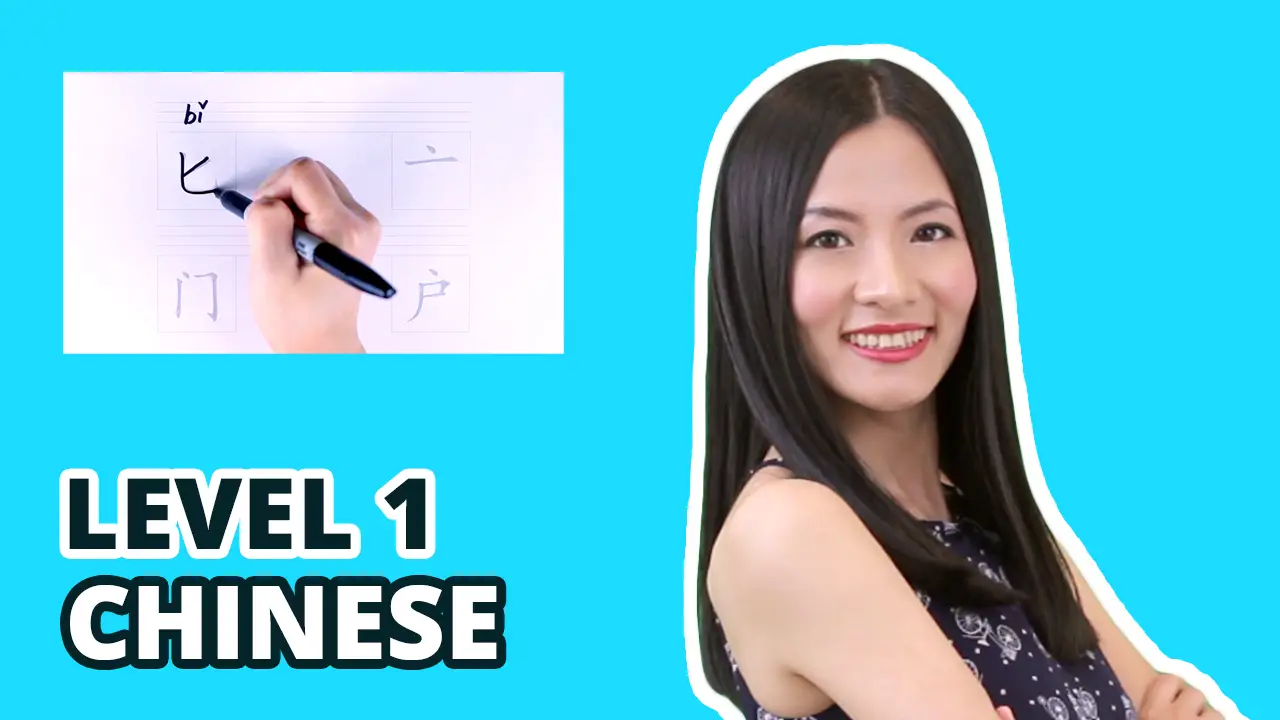Level 1 Lesson 6.1 – This Computer Is Too Expensive, How About That One?
Too Expensive And So Cheap In Chinese | Descriptive Particle 的
In this video lesson we'll learn how to say Too Expensive and So Cheap in Chinese with 太.……了 Structure. Also we'll learn how to use two important words: Descriptive Particle 的 and Question Particle 呢.
- Exclamatory Sentences with 太.……了 structure in Chinese
- Descriptive Particle 的 in Chinese
- Question Particle 呢 in Chinese
- Say Too Expensive and So Cheap in Chinese: 贵 VS. 便宜
VOCABULARY

GRAMMAR
Grammar 1: Question Particle 呢 in Chinese · HSK 1
In Chinese, we can use 呢 to ask a contextual question that is explained by the previous statement or the context. It could be asking about “how about something” or “where is something” depending on the context. We put 呢 after the topic that we're asking about, like this:
____ + 呢?
ASKING "HOW ABOUT SOMETHING"
- wǒ xiǎng mǎi yìtái diànnǎo, nǐ ne 我想买一台电脑,你呢?I want to buy a computer, how about you?
- jīntiān bùxíng, míngtiān ne 今天不行,明天呢? Today is not OK, how about tomorrow?
ASKING "WHERE IS SOMETHING"
- wǒde qián ne 我的钱呢? Where is my money?
- Lǐ Lǎoshī ne 李老师呢? Where is Teacher Li?
Grammar 2: Exclamatory Sentences With 太.……了 Structure in Chinese · HSK 1
There are different ways to make Exclamatory Sentences in Chinese, one of them is with 太……了 Structure. We put an Adjective in the middle:
太 + Adjective + 了 !
- tài piányi le 太便宜了! (It's) so cheap!
- tài guì le 太贵了! (It's) too expensive!
- tài hǎohē le 太好喝了!(It's) so tasty!
- tài xiǎo le 太小了! (It's) too small!
Grammar 3: Descriptive Particle 的 in Chinese in Chinese · HSK 1
We learned 的 being a Possessive Particle before, today we'll learn another usage. It's the Descriptive Particle 的. We can use it to help an Adjective to describe a Noun or a Noun Phrase:
Adjective + 的 + Noun (Phrase)
- piányi de cháyè 便宜的茶叶 cheap tea leaves
- guì de kāfēi 贵的咖啡 expensive coffee
- dà de Hànyǔ xuéxiào 大的汉语学校 big Chinese school / major Chinese school
- hǎochī de shuǐguǒ 好吃的水果 tasty fruits
Grammar 4: Say Too Expensive and So Cheap in Chinese: 贵 VS. 便宜 · HSK 2
If we want to say too expensive and so cheap in Chinese, we use guì 贵 for expensive, and piányi 便宜 for inexpensive or cheap.
- zhè tái kāfēijī hěn piányi 这台咖啡机很便宜。This "tai" (of) coffee maker (is) very cheap.
- nàxiē diànnǎo hěn guì 那些电脑很贵。Those computers (are) very expensive.
6 Comments
Leave a Reply
You must be logged in to post a comment.


Hi Lao shi LiLi
I love this course. It’s very thorough and very well presented.
I am unclear as to when to use measure words. For example, at 3:17 我 的 电 脑 呢 ? why is the measure word not used here?
ie why not: 我 的 台 电 脑 呢 ?
Many thanks
David
你好 David.
我的电脑呢?means “Where is my computer?”
number + measure word is used when the count of the item(s) needs to be involved, and in this context “where is my computer”, the count of computer is unnecessary.
in the previous lessons we learned expressions like “hànyǔ xuéxiào” for “chinese school”. Is this still correct? Because hànyǔ is an adjective describing the noun xuéxiào. Shouldn’t it be hànyǔ de xuéxiào?
I’d appreciate an answer 🙂
Please refer to Grammar 3: Noun Modifying Another Noun in Lesson 3.1
is it okay to use “wo yao mai” instead of “wo xiang mai” ?
Yes, from my experience talking with native speakers they can be interchangeable.
My understanding is that 想 is similar to “would like to” in English. Like 我想去中国 would kind of be like “I would like to go to China”. There isn’t a real intention.
Compared to 要 which is “want” or “need”, its a level above but also comes with an intention.